Reproductive Rights Alliance
The fight for reproductive rights is more intertwined with the LGBT movement than many realize

“The animus against those who support LGBT rights and against those who believe we should have bodily autonomy and reproductive choice flows from the same poisonous tree,” says Kate Kendall, the executive director of the National Center for Lesbian Rights (NCLR). “It’s a sense that individuals are not entitled to their own autonomy, to their own authentic lives, if it runs afoul of a certain code of how we should behave.”
As such there exists a “natural alliance” between the LGBT rights movement and the women’s/reproductive rights movement. It’s a relationship that relies on mutual support — and, quite often, shares the same adversaries, such as those from the cultural right.
That’s why several LGBT organizations helped pack a Northwest D.C. church last Saturday as part of a rally to show solidarity with Planned Parenthood Federation of America, in the wake of a Nov. 27 shooting at a Planned Parenthood clinic in Colorado Springs, Colo. And why earlier this summer, Planned Parenthood issued a statement from its president, Cecile Richards, praising the Supreme Court for legalizing the right of same-sex couples across the nation to marry. Last spring, members of both movements fought against an attempt by Congress to overturn two D.C. nondiscrimination laws, one dealing with access to contraception and the other dealing with LGBT students in religiously-affiliated educational institutions.
But while such shows of solidarity have been fairly recent, the two movements initially grew out of a similar background and context.
“In the 1970s, much of what LGBT people were talking about was sexual freedom and liberation, the idea that our choice of sexual partner should not subject us to harassment, discrimination or stigma,” says Kendall. “In the same way, those seeking bodily autonomy for women to make reproductive choices were also seeking some sexual freedom, so that if a woman chose to terminate her pregnancy, that was between her and her conscience, her and her doctor, but it wasn’t something that government should be involved in. To the extent there was any early sense that these movements are separate, that lasted for five seconds.”
Angela Ferrell-Zabala, director of African American leadership and engagement at Planned Parenthood Federation of America, also agrees that the alliance between the reproductive rights movement and the LGBT movement has been a “natural fit.” Both movements seek to provide people with the information and access to services they need to make informed decisions about their bodies and their health. And in addition to facing staunch opponents, both movements also strongly counter attempts to stigmatize or shame people who seek to exert personal autonomy through their personal sexual or health-related decisions.
“Queer people have abortions. Sex education policy directly affects LGBTQ youth. The reality is that butch women, masculine women, bisexual people seek out contraceptives,” says Kierra Johnson, executive director of URGE: Unite for Reproductive & Gender Equity, an organization focused on reproductive and social justice in the South. “The reality is that what we’re fighting for, which is full access to health care needs, is something that is important to all people. All women and LGBTQ people. And, unfortunately, the opposition likes to try to create a dichotomy or break us off from each other, but we’re all the same.”
Johnson notes that URGE and other social justice organizations have often been involved in states where both reproductive rights and LGBT rights have come under attack. For example, in Florida, there have been battles not only over restricting access to abortion, but over whether LGBT couples should be able to raise, foster or adopt children.
“One of the things we don’t talk about as much in the reproductive rights movement — and probably not as much in the LGBT movement in a very big way — is that people also have the right to enjoy sex and their sexuality, free from coercion and violence,” Johnson adds. “Sex and sexuality are integral parts of who we are as human beings. We live in a society where discrimination runs rampant based on how people think or feel or judge based on sex and sexuality, which is a real impediment to people living healthy and happy lives.
“We have to work together,” she continues. “Long gone is the time where it’s strategic to be siloed in our activism, or siloed in our understanding of what justice is and should be. We can’t win policy change, we can’t win culture change, and we can’t win real victories for the people in our lives without coming together.”
Rea Carey, executive director of the National LGBTQ Task Force, says that not only are both movements intrinsically linked from a historical and modern-day perspective, but have been “walking hand-in-hand” from a legal standpoint.
“Legally, when you imagine a pathway towards both legal equality and full acceptance in society, in some ways it’s as if we kept putting down paving stones on that pathway for each other,” she says. “Both of our respective movements’ legal victories have been dependent on the other movement’s legal victories. So whether we’re looking at Roe v. Wade, or Bowers v. Hardwick, or Edie Windsor’s historic case, you can see those building blocks or paving stones in how each of our movements and our rights have advanced.”
Carey also warns that the fates of both movements often rise and fall together. For instance, the day after the Supreme Court decided the Hobby Lobby case — in which the court ruled employers could refuse to pay for insurance coverage for contraception under the federal Religious Freedom Restoration Act (RFRA) — a group of pastors wrote to President Obama asking him to expand the religious exemption for his executive order barring federal contractors from discriminating against LGBT people. In addition, the Supreme Court’s decision in Hobby Lobby heavily influenced the Indiana legislature when it passed its own version of a state-level RFRA that critics said effectively condoned anti-LGBT discrimination.
“Our fates are tied together,” she says. “It is not a long jump from an employer, because of their religious beliefs, saying to an employee ‘I will not let you have birth control,’ to get to ‘You’re a gay man, and because I don’t believe in that, I’m not going to let you have PrEP.'”
Carey says that many of the same strategies to limit access to reproductive health services at the state level under RFRA laws are also being used to advance “religious exemption” laws designed to undercut the LGBT rights movement, such as attempts to allow clerks to refuse to marry or deny same-sex couples marriage licenses. And she warns that those involved in the LGBT rights movement cannot be afford to be apathetic about attacks on reproductive rights, lest they find themselves targeted in future.
“Looking back at our history, Bowers v. Hardwick, the ability to have sex with the person you want to have sex with in your own home, was dependent on the success of the reproductive rights movement,” says Carey. “Not a lot of people know that. We need to remind people of where we’ve come from, and that we have this shared sense around the decisions that each of us gets to make about our own bodies, whether that’s who we have sex with, or whether or not we’re ready to have a child at this point in our life.
“We need to continue to remind and often reeducate ourselves about how tied our movements are, both legally and politically,” she adds. “And if we don’t hold the line on who or what issue gets peeled off, soon enough, more and more of us will get peeled off until we no longer have the protections, as LGBTQ people, that we need.”
Support Metro Weekly’s Journalism
These are challenging times for news organizations. And yet it’s crucial we stay active and provide vital resources and information to both our local readers and the world. So won’t you please take a moment and consider supporting Metro Weekly with a membership? For as little as $5 a month, you can help ensure Metro Weekly magazine and MetroWeekly.com remain free, viable resources as we provide the best, most diverse, culturally-resonant LGBTQ coverage in both the D.C. region and around the world. Memberships come with exclusive perks and discounts, your own personal digital delivery of each week’s magazine (and an archive), access to our Member's Lounge when it launches this fall, and exclusive members-only items like Metro Weekly Membership Mugs and Tote Bags! Check out all our membership levels here and please join us today!























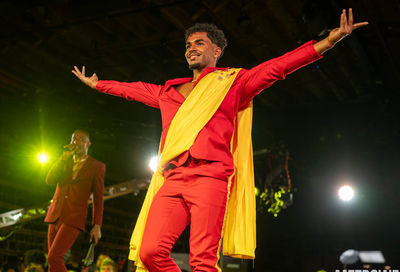

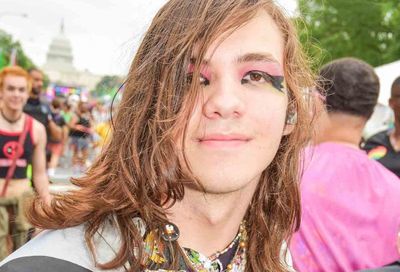
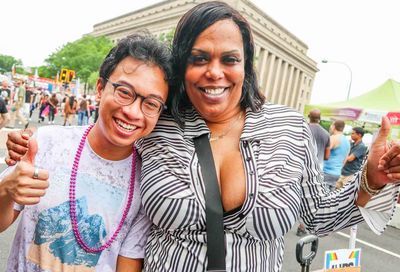


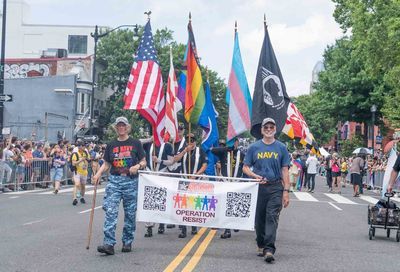

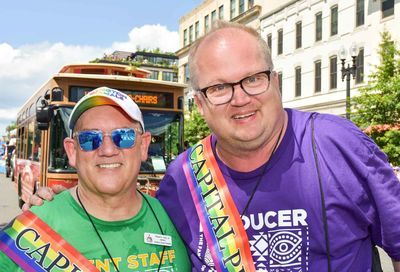
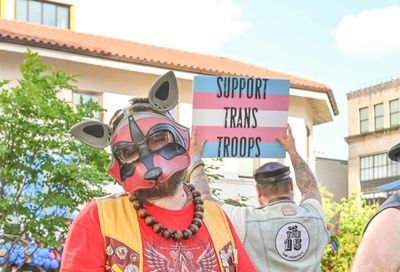
You must be logged in to post a comment.